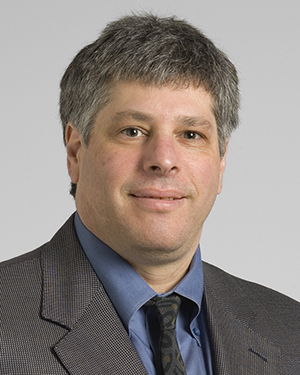Research News
11/13/2019
Mechanical Signaling Cascade Central to Fibrotic Scar Tissue Development Defined
Findings suggest that blocking TRPV4 and PI3Kγ binding may be an unexplored avenue for treating or preventing fibrotic conditions of many major organs.

In a new study published in Science Signaling, Cleveland Clinic researchers have identified a novel target for new therapies that may help to treat or prevent a host of fibrotic conditions, which contribute to nearly half of overall mortality in the United States.
Fibrotic diseases are characterized by the overproduction of extracellular matrix (ECM), with resultant formation of scar tissue. Cells called myofibroblasts are thought to be the major producers of the scar tissue. Two key signals are needed to generate these myofibroblasts—active TGF-β (transforming growth factor-β) and a mechanical signal.
Previous research (published in the Journal of Clinical Investigation, 2014) led by Mitchell Olman, MD, a Cleveland Clinic physician-scientist and senior author of the current study, identified an ion channel called TRPV4 (transient receptor potential vanilloid) as the key transducer of the mechanical signal that leads to myofibroblast generation.
In the current study, research teams led by Dr. Olman and S.V. Naga Prasad, PhD, discovered that TRPV4 selectively binds to a kinase called PI3Kγ (phosphoinositide 3-kinase γ) to form an intracellular protein complex. This TRPV4-PI3Kγ complex—which is recruited by TGF-β—migrates from inside the cell to the plasma membrane and subsequently amplifies the actions of each individual protein, ultimately resulting in the differentiation of fibroblasts to myofibroblasts. Myofibroblasts produce and expel ECM outside of the cell, and contract the ECM to generate scar tissue—the hallmark of fibrotic diseases.
Taken together, these findings suggest that blocking TRPV4 and PI3Kγ binding may be an unexplored avenue for treating or preventing fibrotic conditions of many major organs. While additional research is necessary, this study provides promising support and rationale for a new treatment approach.
Lisa Grove, PhD, a postdoctoral fellow in Dr. Olman’s laboratory, is first author on the study, which was supported by the National Heart, Lung, and Blood Institute (part of the National Institutes of Health). Dr. Olman is a researcher in the Department of Inflammation & Immunity and a practicing pulmonologist. Dr. Prasad is a researcher in the Department of Cardiovascular & Metabolic Sciences.
Photo: Lung fibroblasts isolated from a preclinical model were stimulated with TGF-β to induce myofibroblast differentiation. The presence of yellow/orange in stress fibers indicates colocalization of phalloidin (F-actin, red) and alpha smooth muscle actin (αSMA, green), indicating incorporation of αSMA into stress fibers, which is a hallmark of myofibroblasts.
Featured Experts
News Category
Related News
Research areas
Want To Support Ground-Breaking Research at Cleveland Clinic?
Discover how you can help Cleveland Clinic save lives and continue to lead the transformation of healthcare.
Give to Cleveland Clinic